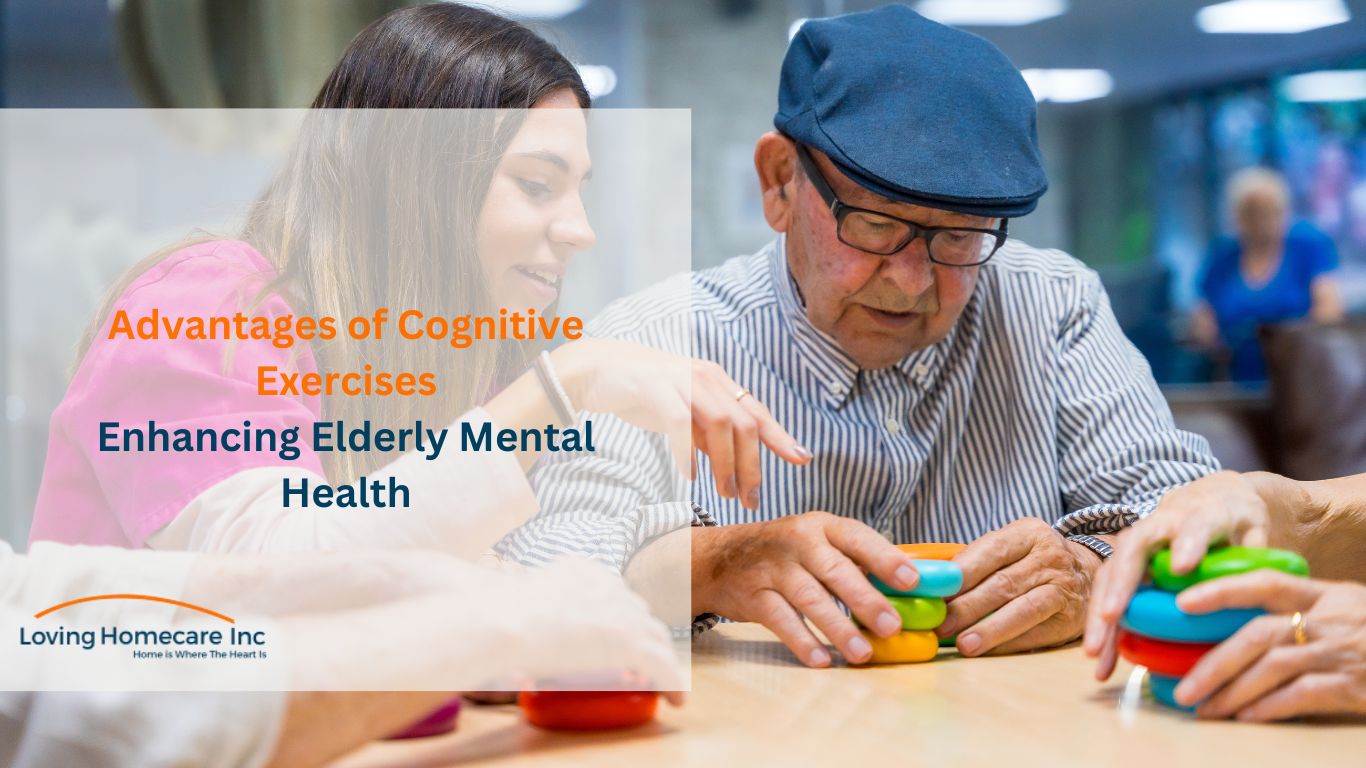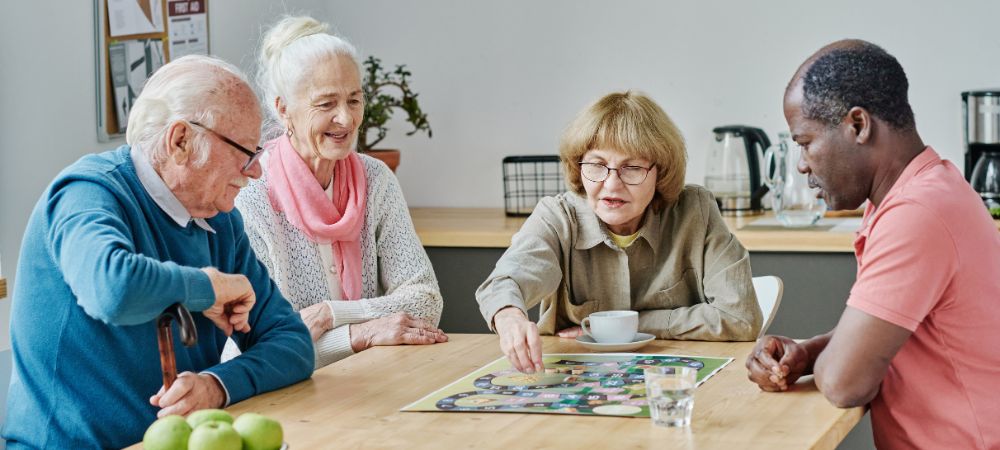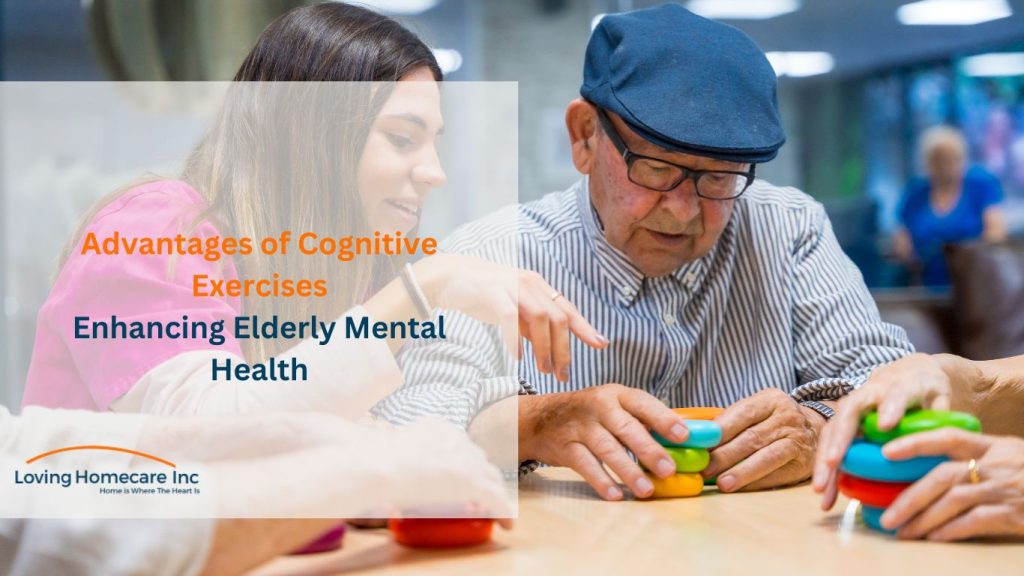Recently updated on January 8th, 2026 at 01:00 pm
 Have you ever considered how elderly individuals can maintain cognitive abilities and a healthy mental state as they age? The answer to this question lies in engaging them in various cognitive activities.
Have you ever considered how elderly individuals can maintain cognitive abilities and a healthy mental state as they age? The answer to this question lies in engaging them in various cognitive activities.
These activities are enjoyable and play a vital role in promoting mental health and well-being significantly. As we grow older, it becomes increasingly important to maintain cognitive functions in order to prevent cognitive decline.
Let’s embark on a journey and learn about cognitive activities and their significance. We will further explore the benefits of cognitive activities for the elderly.
What Are Cognitive Activities?

Do you know what cognitive activities are?
Cognitive activities are different types of mental exercises or tasks. These exercises stimulate various cognitive functions, including memory, attention, problem-solving, and reasoning. These activities keep the brain active and help to maintain and improve cognitive functions in individuals of all ages.
Cognitive activities are especially significant for elderly individuals as these not only help preserve mental sharpness and prevent mental deterioration.
Importance of Cognitive Activities for Elderly Mental Health
It is no hidden secret that as we humans age, our brains undergo some natural processes. These natural processes occurring in the brain can lead to cognitive decline. Many factors can contribute to this decline, including aging, lifestyle choices, and underlying health conditions.
The way workouts help combat physical decline; cognitive activities can help combat this mental deterioration. These activities are essential for the mental health of elderly individuals. Cognitive activities help preserve cognitive function, maintain independence, improve quality of life, prevent social isolation, and delay the onset of neurodegenerative diseases. Therefore, incorporating cognitive activities into daily routines is a must to ensure a healthy and fulfilling life in the golden years.
Examples of Cognitive Activities for the Elderly
Many cognitive activities for the elderly can be used to improve their mental health. Let’s explore some of these activities:
1. Word Games and Puzzles

Word games and puzzles remain highly effective, with modern adaptations including digital formats tailored to individual cognitive levels, adaptive difficulty, and group competition elements to enhance engagement.
Engaging in such activities improves memory, helps recall words, and improves problem-solving skills. Such activities not only provide mental stimulation but are also enjoyable.
2. Playing Musical Instruments
Singing orPlaying musical instruments stimulates multiple brain regions and improves mood; it is now commonly used in both individual and group reminiscence sessions as part of comprehensive cognitive care. Research has shown that music stimulates various areas of the brain, including memory, attention, and emotional processing, improving overall mental stability.
3. Problem-Solving Exercises
Problem-solving exercises such as riddles, puzzles, and mathematical challenges can sharpen mental abilities. These cognitive skill activities for the elderly challenge the brain, leading to creative and analytical thinking. Such activities foster mental flexibility and resilience.
4. Creative Expression

Creative expression through art and crafts stimulates neuroplasticity, delays cognitive decline, and is increasingly integrated into daily routines in senior care environments to foster social connection and emotional well-being.
Being involved in such activities can give individuals a sense of accomplishment and promote self-expression.
5. Group Discussion and Debates
Group discussions and debates not only support critical thinking and communication skills but also combat loneliness, a major risk factor for cognitive decline, and are now facilitated through virtual platforms to expand access and engagement. These activities contribute to the improvement of critical thinking and communication skills. These activities will also help individuals understand different perspectives, leading to intellectual engagement and mental stimulation.
6. Reminiscence Therapy
Reminiscence therapy, which involves using personalized photographs and music, is now widely recognized for improving mood and reducing agitation in dementia care, especially when integrated into daily routines and group formats. Being a part of such activities can promote cognitive stimulation and emotional well-being.
It is important to understand that this list of activities does not encompass all the cognitive activities. It is necessary to choose activities that are appropriate for the individual’s cognitive abilities. For example, when providing dementia elderly care, choose simple activities, stimulation exercises, reminiscence therapy, or other simpler activities.
Beyond individual activities, structured multi-domain lifestyle interventions that combine physical exercise, nutrition, cognitive challenges, and social engagement have been shown in recent studies like the U.S. POINTER trial to significantly protect cognition in older adults at risk for decline, offering scalable solutions for diverse populations.
7 Benefits of Cognitive Activities for the Elderly
You now know that cognitive development activities are vital in promoting cognitive health and mental well-being. Let’s further explore the benefits of these activities:
1. Improved Cognitive Function

One of the primary benefits of these cognitive activities for the elderly includes improved cognitive functions. These activities challenge the brain and lead to improved memory, attention, problem-solving skills, and reasoning abilities.
Recent studies, such as the U.S. POINTER trial, demonstrate that structured multi-domain lifestyle interventions—including physical exercise, nutrition, and cognitive challenges—can significantly improve cognition and offer protection from age-related decline for up to two years. Allowing elders to enjoy an extra year of ‘cognitive youth.’
Keeping your mind engaged is the key to maintaining mental acuity and preventing age-related cognitive impairments.
2. Better Social Interaction
Many cognitive group activities, such as group discussions, games, and puzzles, improve communication skills and relationships between participants. These group activities also promote social interactions. Social interactions tend to reduce feelings of loneliness and isolation among individuals and improve their mood and overall well-being.
Cognitive activities that involve social interactions strengthen the social bonds of individuals. This instills in them a sense of belonging within their community.
3. Enhanced Communication Skills
As we grow older, cognitive impairment can also affect communication skills. Effected communication skills can make it challenging for individuals to express their thoughts and ideas. Many cognitive activities for older adults, such as reading, crossword puzzles, and writing, can help maintain and improve communication skills.
These cognitive activities for your elderly loved ones will stimulate the language center in their brain. Leading to enhanced vocabulary and promoting cognitive flexibility.
Individuals can express themselves clearly when they participate in cognitive activities that focus on communication.
Technology is rapidly transforming cognitive care, with the adoption of remote monitoring, digital cognitive training tools, and virtual group platforms enabling personalized therapy and social interaction from home, which is especially beneficial for aging in place and addressing rising caregiver burden.
4. Physical Health Benefits

Cognitive activities are beneficial for mental health and play a significant role in improving physical health. Various cognitive activities, such as gardening, cooking, and crafting, involve physical movement and agility. These activities can help in improving mobility, coordination, and strength.
Participating in regular physical activities is necessary for maintaining overall health and well-being. Cognitive activities provide an enjoyable and engaging way for older individuals to stay active and physically healthy.
5. Improved Sensory Abilities
Age can affect many aspects of our life, including our senses. Many cognitive activities can involve multiple senses, including sight, touch, hearing, etc., and help improve the sensory abilities of older individuals.
Activities that positively affect an individual’s sensory abilities include painting, cooking, and playing musical instruments. These activities will stimulate different sensory receptors in the brain and improve sensory processing and perception.
Older individuals can achieve improved sensory abilities by regularly participating in cognitive activities that stimulate the senses. This would help them enjoy a better quality of life.
6. Emotional Well-being
When one participates in different cognitive activities, they can even experience a positive impact on emotional well-being. These activities instill a sense of purpose, accomplishment, and satisfaction in individuals. Such feelings lead to a positive emotional state of happiness and fulfillment.
Moreover, these activities are also a source of mental stimulation and help distract an individual from his negative thoughts, such as stress, anxiety, and depression.
For better quality of life and emotional well-being, it is necessary to keep your elderly loved ones engaged in cognitive activities.
7. Prevention of Cognitive Decline

One of the most significant benefits of cognitive activities for the elderly includes the prevention of cognitive decline and other age-related neurodegenerative diseases such as dementia.
Research has shown that regularly participating in cognitive activities can reduce the risk of cognitive impairment. It can even lead to a delay in the onset of age-related neurodegenerative diseases. Hence, keeping the brain active and engaged is important to preserve cognitive function and mental health well into old age.
Over to You
The contributions of cognitive activities can not be denied in improving the quality of life. These activities improve the mental health and well-being of older individuals. Moreover, these activities play a crucial role in preserving cognitive function, maintaining independence, and preventing social isolation. Additionally, with the help of these activities, the onset of various neurodegenerative diseases can be delayed.
Caring for elderly adults can be time-consuming. Not everyone has the time, knowledge, and resources to care for their older loved one. If you seek specialized care for your loved ones, visit Loving Home Care Inc.
Loving Homecare Inc. provides specialized care for individuals facing cognitive decline and age-related neurodegenerative diseases.
In regions like Los Angeles and Orange County, there is a growing emphasis on home-based cognitive therapies and memory care programs that incorporate sensory rooms and reminiscence activities, aligning with national trends to improve outcomes, reduce hospitalizations, and support caregivers through digital resources.

